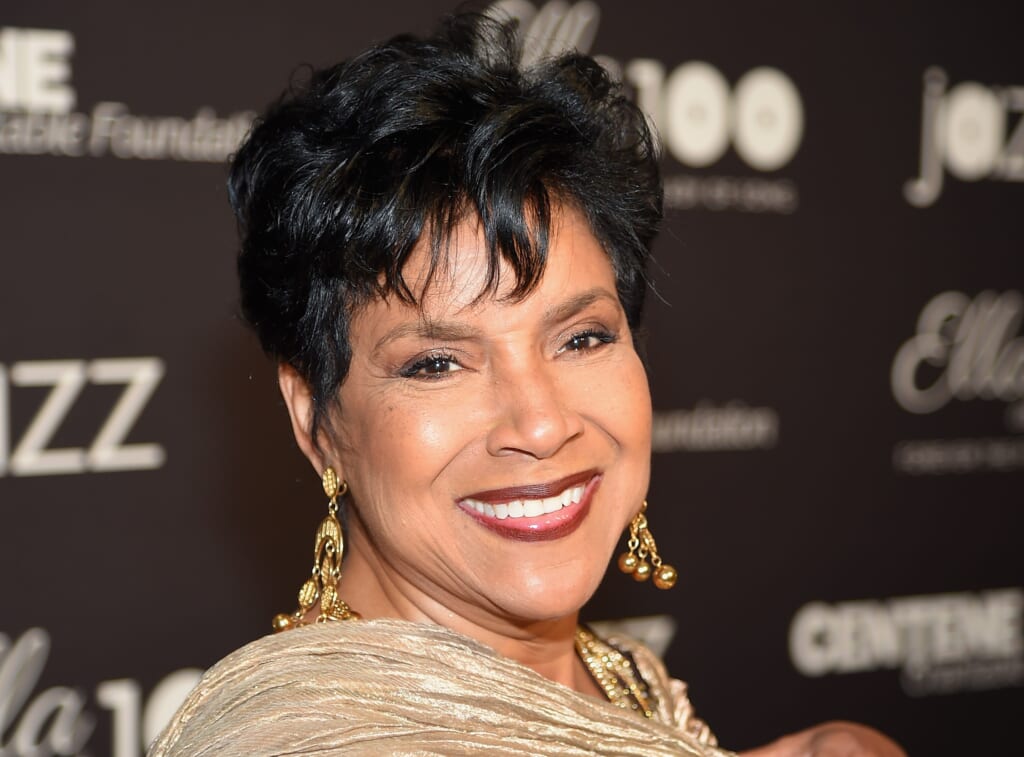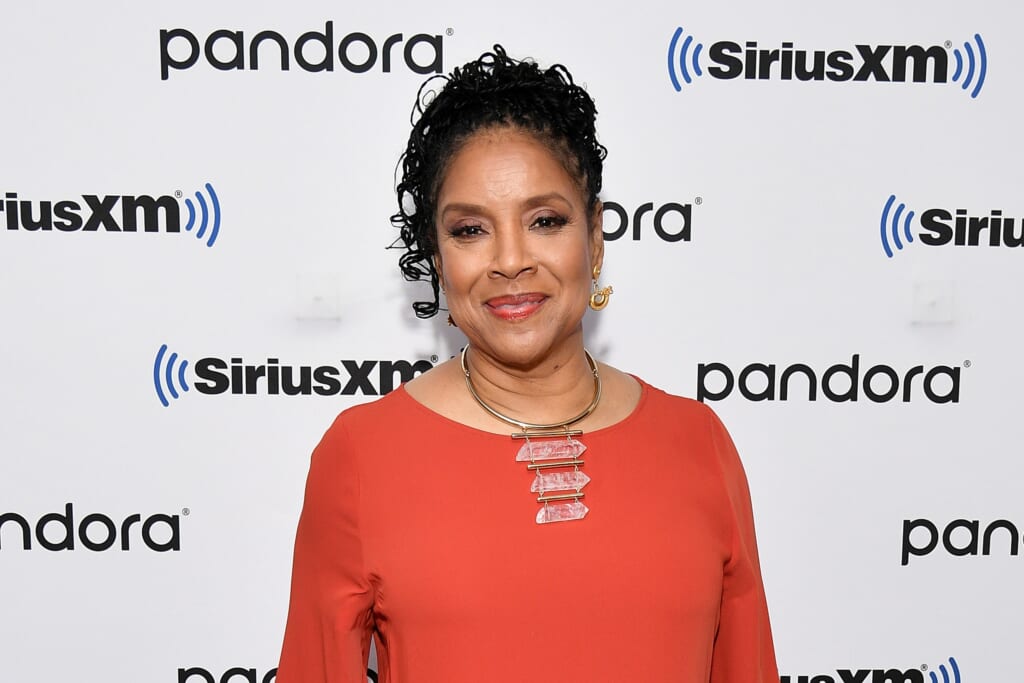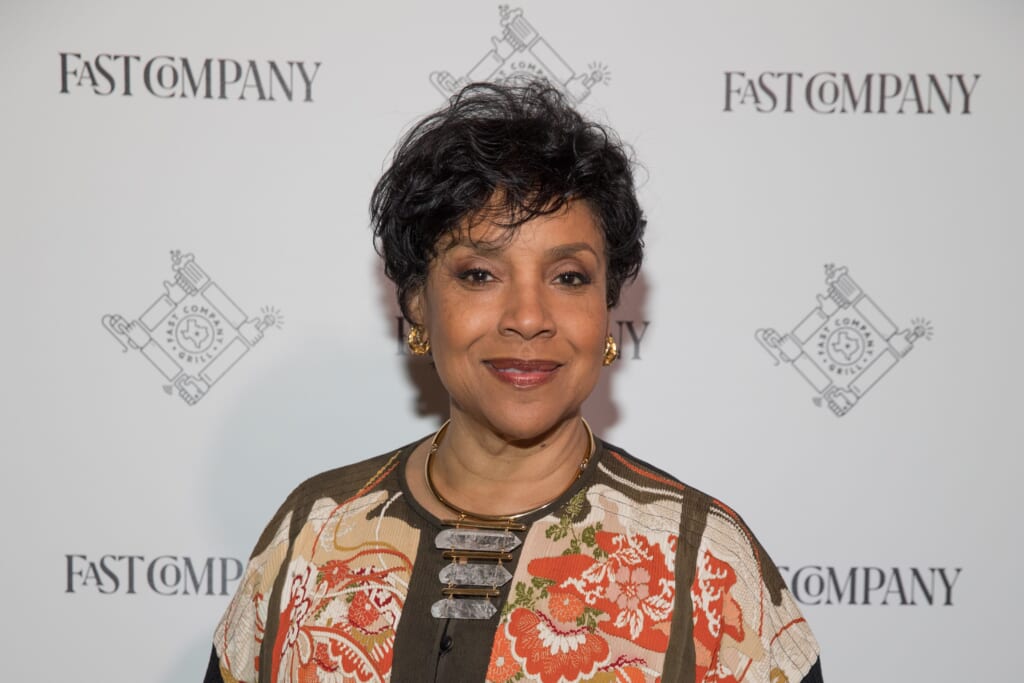Phylicia Rashad honors the ‘service and upliftment’ of Alpha Kappa Alpha
EXCLUSIVE: The actress speaks with theGrio about narrating the documentary about the nation's first Black, Greek letter sorority of which she is a member
Phylicia Rashad is beloved in the culture as her immense talents have created a connection with the public across generations. Her captivating presence is once again on display as she narrates Twenty Pearls, a documentary about the Alpha Kappa Alpha Sorority of which she is a proud member.
The legendary actress is renowed for her role as Clair Huxtable on The Cosby Show. Rashad portrayed Clair with poise, elegance, and quick-wit as the matriarch who warned against “Big Fun” and endeared herself to the audience. She’s also commanded the stages of Broadway and appeared on the silver screen in films such as Creed and Tyler Perry’s Good Deeds.
Rashad has returned to the small screen in recent years with roles on Empire, Grey’s Anatomy, the Netflix Christmas musical Jingle Jangle and a recurring role on This Is Us.
“I am most grateful to have been able to do some work that has meant so much to people that it seems to traverse generations and that is because of the work itself,” Rashad told theGrio in an exclusive interview. “I don’t attribute that to myself at all. I think it’s the work.”
Read More: Alpha Kappa Alpha celebrates historic achievement with ‘Kamala D. Harris Day’

Rashad brings her gravitas to the just-released Twenty Pearls: The Story of Alpha Kappa Alpha Sorority, Incorporated, which recently premiered on Comcast’s newly launched Black Experience on Xfinity channel. The documentary features interviews with AKA members such as Vice President Kamala Harris, Miss Universe Ireland 2019 Fionnghuala O’Reilly, Smithsonian Secretary Lonnie Bunch, and others.
Twenty Pearls, whose title is lifted from the emblem of the first Black Greek-letter sorority and a nod to every new member being given a badge with 20 pearls, is from award-winning filmmaker Deborah Riley Draper and produced by Coffee Bluff Pictures. The doc tells the story of how nine Black women attending Howard University in 1908 changed the course of history.
Since its inception, the ladies of the pink and green have lived out their creed of “Service to All Mankind.”For 113 years, watershed moments have included the Civil and Women’s rights movements, HBCU endowments and mobilizing support for Harris’ historic appointment as the nation’s first Black woman VP.
“It’s a documentary that puts the history of the sorority in context with the history of our nation. You’re getting parallel understandings here and that has not been done. It’s revelatory in many aspects,” Rashad, a Howard alum, explained.
Read More: April Ryan pays tribute to Black women in new book: ‘It’s a love letter’
“For me, even as a member of the sorority all these years, there were things that I just did not know concerning the legacy of the sorority, the women who established it and joined subsequently, and how that intention, that very pure intention to be of service and upliftment carried itself just steadily along as the organization grew.”
The award-winning versatile actress credited the AKA’s commitment to service as one of the tenets of their legacy and longevity. The sorority boasts 300,000 members and 1,026 chapters.
“I think it begins with the intention with which it was founded and that attracted like minds. You see this in the documentary,” she said. “It’s reiterated again and again how like minds–it is like a magnet for four women who would think that way.”
Rashad shared how a soror wanted to know what the plan of action was to address Georgia implementing voting restrictions.
“The service that has been provided, the activism that is ongoing, that is never-ending, that continues. I just checked my e-mail and I got an e-mail from a soror saying, ‘So we got to do something about this. About this voter suppression.’”

Rashad also has a focus on the younger generation, in particular young women. She believed a breakdown in the family and educational structures were contributing factors as to why some did not respect themselves.
“There’s certainly been that there are deliberate attempts to dismantle education, deliberate attempts. And when I look at schools being privatized, schools, whole school systems being privatized and owned by the same companies that own institutions for incarceration,” Rashad, who comes from a family of educators, said.
“I’m saying to myself, ‘Nobody sees anything amiss in that? You don’t see something wrong with that.’ So these schools become pipelines to prison.”
She pushed back against the notion that the older generation prioritized respectability politics.
“You need to go back and you need to study John Lewis,” she declared. “You need to go back and look at Rev. [Joseph] Lowery and C.T. Vivian. You need to go back in every country in this world. People are eliminated because they’ve done good. This is not new. This has been throughout the course of history.”
Read More: Danielle Brooks says Mahalia Jackson’s hysterectomy was ‘necessary’ to include in biopic

She punctuated her point.
“This is not politics of respectability. I’m talking about common human decency and respecting one’s own self. That’s all I’m talking about. Respect for one’s own self. There ain’t nothing political about that.”
Rashad doesn’t miss a beat.
“And I said it ‘ain’t’ because I meant it. There ain’t nothing political about self respect.”
Ultimately, Rashad believed that we were all capable of making a difference in the world even if a pledge isn’t taken to do so. It starts with each person knowing who they are.
“I think what’s really important is that we grow fully into ourselves. I think that’s what’s really important because those women who founded it were growing into themselves. And that’s really the gift that’s being offered,” she said.
Have you subscribed to theGrio’s podcast “Dear Culture”? Download our newest episodes now!
TheGrio is now on Apple TV, Amazon Fire, and Roku. Download theGrio today!
